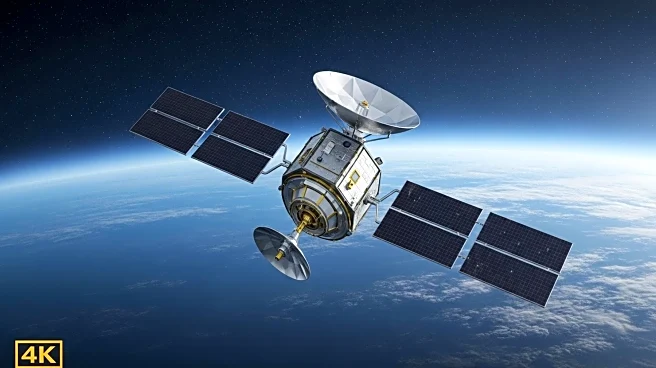What's Happening?
A study by researchers from the University of California, San Diego, and the University of Maryland has uncovered significant vulnerabilities in satellite communications. The researchers found that data from cellphone carriers, retailers, banks, and militaries
are being transmitted unencrypted through geostationary satellites. Using a setup costing approximately $750, the team was able to intercept a wide range of communication data, including phone calls, texts, and military communications. The study highlights a mismatch between expected and actual data security practices among satellite customers. The findings are being presented at an Association for Computing Machinery conference in Taiwan.
Why It's Important?
The exposure of unencrypted satellite data poses serious security risks for affected organizations, including potential data breaches and unauthorized access to sensitive information. The study reveals vulnerabilities in the infrastructure relied upon by telecom companies, military entities, and other organizations for secure communications. This could lead to significant consequences for national security and corporate confidentiality. The research emphasizes the need for improved encryption practices and security measures in satellite communications to protect against data interception.
What's Next?
Affected organizations have been notified of the security flaws, and some have already implemented fixes. The researchers plan to continue monitoring the situation and verify the effectiveness of the deployed solutions. The study may prompt further investigations into satellite communication security and lead to industry-wide changes in encryption practices. Stakeholders, including telecom companies and military agencies, will likely reassess their security protocols to prevent future vulnerabilities.

















